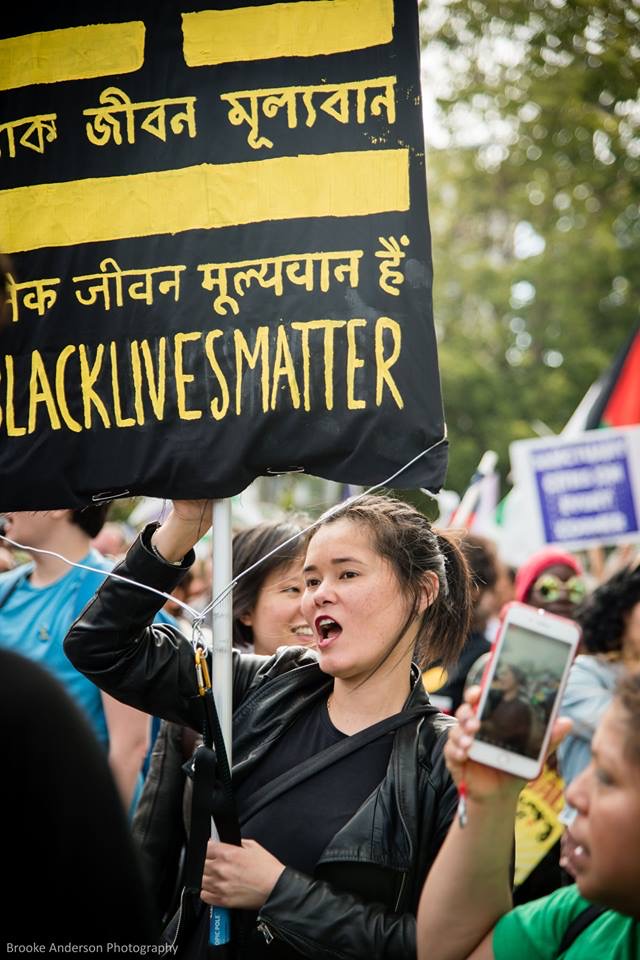Last month, we announced our 2024 We Got Us Fund grantees. As we wind down grantmaking season, we met with New Breath Foundation’s Director of Programs, Claudia Leung, to learn more about how her background in the arts led her to philanthropy, what makes NBF’s programming unique, and what she’s looking forward to with NBF in the coming year.
Could you tell us about your background and how you came into this work?
My role at NBF is the perfect combination of my passion for organizing and my background in philanthropy. I’ve been in community for years with many of the organizations and individuals that we now fund, and it’s truly an honor to live out my values through this work.
I’ve been in the field of philanthropy for seven years. I previously worked in the arts and nonprofit sector and also organized within the intersectional racial justice movement, longest with the group Asians for Black Lives. I learned so much in this work, about cross-racial solidarity, centering folks most directly impacted, and how to work in coalition. One of the things we did was demonstrate a different way for Asians to show up for racial justice, upending the model minority myth, which was important to me because of how I grew up.
I grew up in Silicon Valley–a predominantly East Asian community with a lot of educational and class privilege. I didn’t have a clear idea of Asian American as a political identity—it felt more cultural. I was always interested in art and literature, and I started to become more politicized through those subjects—the humanities and cultural studies being an avenue to critical thinking, asking questions, and digging deeper for answers.
Attending college in Minnesota gave me a different perspective of what it was like to be Asian in the U.S. The Twin Cities’ Asian population consists of predominantly Southeast Asian refugee communities. Throughout this time, building with and organizing alongside other activists and politicized artists helped further build my political identity.
Although my current role at New Breath is not directly related to art, I know that it’s a big part of what many of the organizations we fund do. Cultural work is a way to connect people to politics and to who they are, their communities, histories, and ancestors.
What does your role as Director of Programs entail?
My main focus is on grantmaking, which entails many different aspects: building our relationships with our grantees, the support and services we offer them, and doing community engagement. My role covers everything from working with our Community Advisory Committee (CAC) to being a speaker at public events to building partnerships with organizations that create programming we want to support. It is an extensive range of responsibilities, but at its core is actually design thinking—something I brought with me from my background in the arts. We create and iterate our processes, so we can ensure that the funds we grant are in line with our values and our mission. We are constantly learning and refining so that every year, decision-making more and more centers our focus communities of AANHPI who are directly impacted by incarceration, detention, deportation, and criminalization.
Beyond the “dollar” or grants, we offer capacity and strength-building support to our grantees at three levels. We do this because we recognize that movements are built not only by organizations but also by individual people and networks.
- At the individual level, we provide liberatory leadership coaching where grantees can receive one-on-one support around a range of topics.
- At the organizational level, we offer a capacity-building tool that helps organizations assess their internal strengths, challenges, and room for improvement.
- At the movement level, we host the grantee convening, a chance for everyone to come together, build resources, and do work around healing that connects them to other people in the same movement. The convening encourages grantees to turn to each other as well as NBF for support. Their best and strongest resource is each other.
We do a lot for a small foundation, and we’ve been thoughtful and intentional about building our programming to support the various needs of our grantees. Our focus on relationship-building allows us to have beautiful, trusting relationships with our grantees, many of whom we’ve known for a long time.
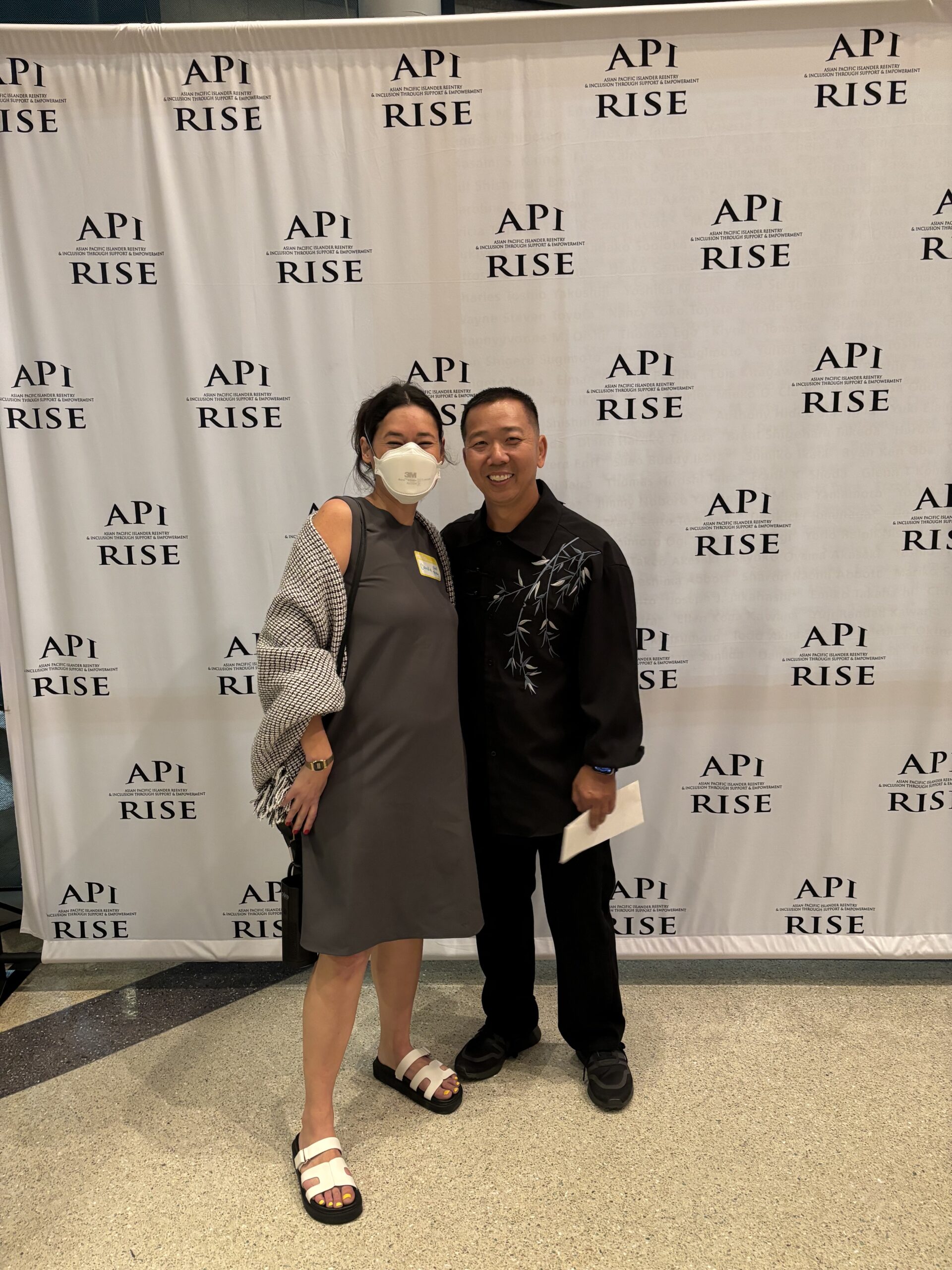
What are some of your main responsibilities in this position?
The day-to-day isn’t always very sexy. It involves a lot of emails, meetings, and Zoom calls. I love the days when I get to be out in the field, for example, when I’m doing a site visit with a grantee, going to a meeting with other funders, or at the convening. But for me, it’s all rewarding because it’s all part of a greater vision.
My primary responsibilities include developing programs, having strategy discussions, facilitating meetings, organizing meeting agendas, budgeting, working with consultants, and designing evaluation processes. As part of a startup foundation, my director role remains very hands-on. I’m very fortunate to have the support of an amazing Program Manager, Mari Yamagiwa, as a part of our small but mighty team. We all work at the macro and micro levels of all our programming.
What does the grantmaking season look like, in terms of workload and project focus?
We are on a grantmaking cycle that lasts a calendar year. Generally, the first quarter involves a lot of planning and launching offerings to grantees, such as leadership coaching. We also begin preparing for the convening. We’re quite event-focused in the second quarter; we host our convening and our annual fundraiser. It’s also when many philanthropic conferences happen, so we travel to meet other funders during this quarter to build strategy and share learnings and best practices. Summertime is the heavy grantmaking season. That’s when we get into the process of receiving nominations and reviewing submissions. A lot of community engagement comes along with this, so we bring in stakeholders from our community that help with every step. In the last quarter of the year, we’re wrapping things up: announcing grant awards, making payments, finishing our programming, attending conferences, and engaging with other funders.
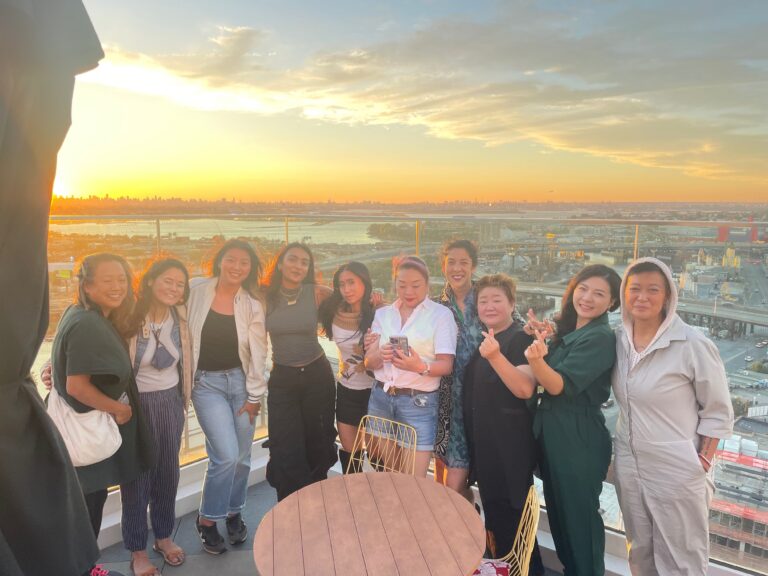
How do NBF programs differ from other philanthropic organizations?
New Breath stands out in several ways. Eddy is unique as our founder because of where he comes from—not just his life sentence and incarceration since he was a teen but also his strong experience as an organizer and a leader for decades. This unique origin story means NBF prioritizes the lived experience of incarceration, detention, and deportation. We see these things as assets, not a risk or liability, and actively support building leadership pathways for people in our movement with these experiences.
Because our team comes from movement-building, we also intimately understand our organizations’ challenges. We understand what it’s like to be on the other side, to be fundraising, to work with foundations, to feel unclear about the roles of funders, and to navigate this work. With our understanding, we tailor our approach to be as culturally relevant as possible.
We stay accountable to our communities through the CAC, which is mostly composed of people directly impacted by incarceration. We value folks’ intimate knowledge of criminal systems and how they impact individuals and communities. These perspectives influence everything about how we do our work.
NBF also invests in continuous learning to meet the evolving needs of diverse AANHPI communities. For example, we’ve worked to improve translation and interpretation services to better serve migrant and non-English-speaking leaders. Internally, we host regular collective learning sessions, drawing on grantee resources and partner expertise to stay informed on issues that deeply impact our work, from Hawaiian sovereignty to transformative justice.
How have you seen grantmaking evolve in NBF?
Since I joined New Breath, we’ve refined our grantmaking processes for the We Got Us Fund and the New Breath Fund. We’ve clarified our grantmaking goals and criteria and developed a structured internal process, including specific points where community members and stakeholders are actively involved.
The We Got Us Fund had been around for one grantmaking season before I joined the team. To identify candidates aligned with the fund’s goals and criteria, I helped to launch a nomination process that involved existing grantees, the Community Advisory Committee, board members, staff, and some select funders. This approach made the process more participatory and community-driven.
The New Breath Fund is our original fund, and we’ve shifted its focus to serve as an introductory grant. These smaller grants help us build relationships with organizations that may not fully align with We Got Us Fund priorities or that we’re still getting to know. It’s a way to recognize and support their work while exploring how our relationship might grow.
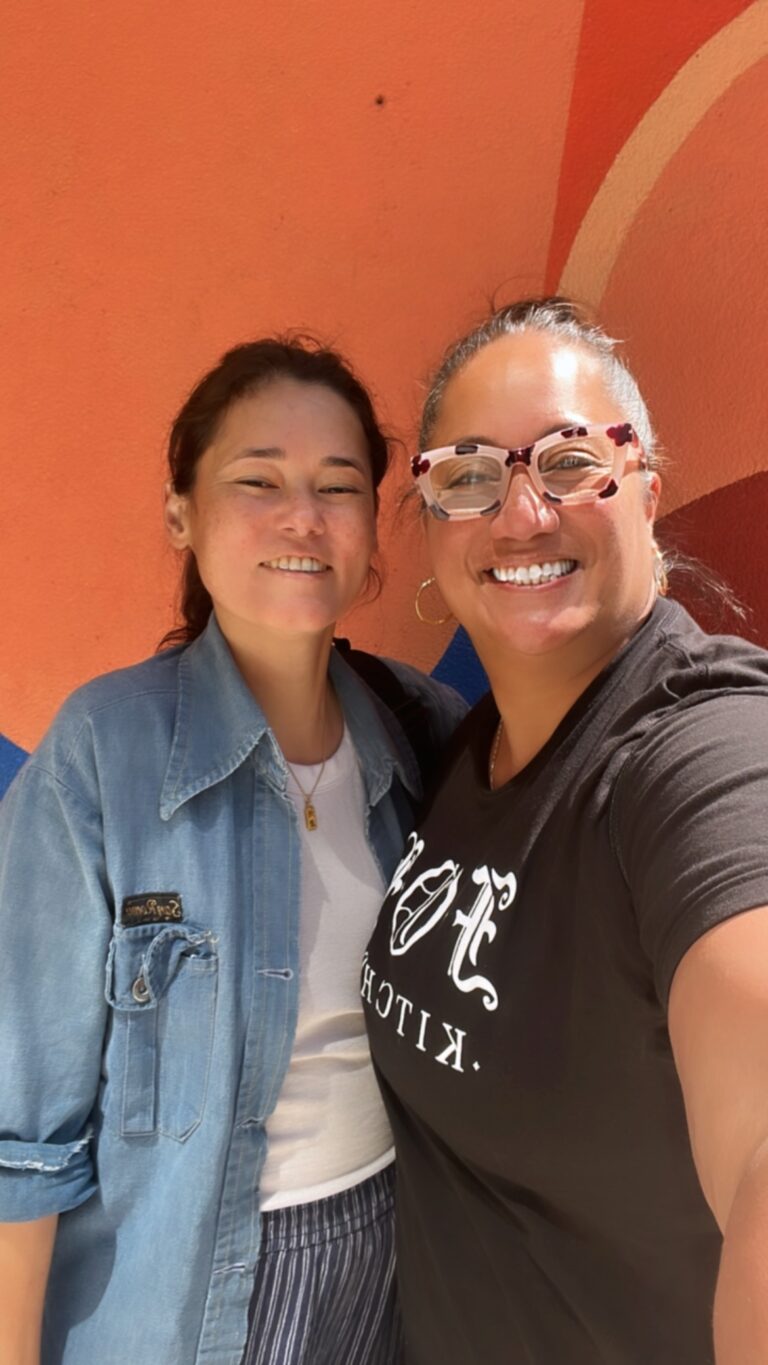
What are some challenges in your work and what motivates you to keep doing this work?
Challenges in this work are similar to those faced by many funders. The need for resources and support always exceeds what’s available. To address this, we focus intentionally on a specific segment of the movement and build deeply within it rather than spreading ourselves too thin. We work very efficiently and effectively, and we continuously look for ways to streamline our work, whether it’s through human or financial resources, to meet the demands of our ambitious programming.
We aim to bring more directly impacted individuals into this work, ensuring their voices shape our efforts. What keeps me motivated is seeing the impact and real examples of success. Over the past two and a half years, I’ve witnessed shifts in our capacity and resources, and I know change is possible. Our position in this field and our role in funding is making a change. Feedback from grantees reinforces that our support is making a difference, and every opportunity to connect with them—whether through conversations, site visits, or doing my own learning about them—reaffirms the importance of what we do and fuels my motivation.
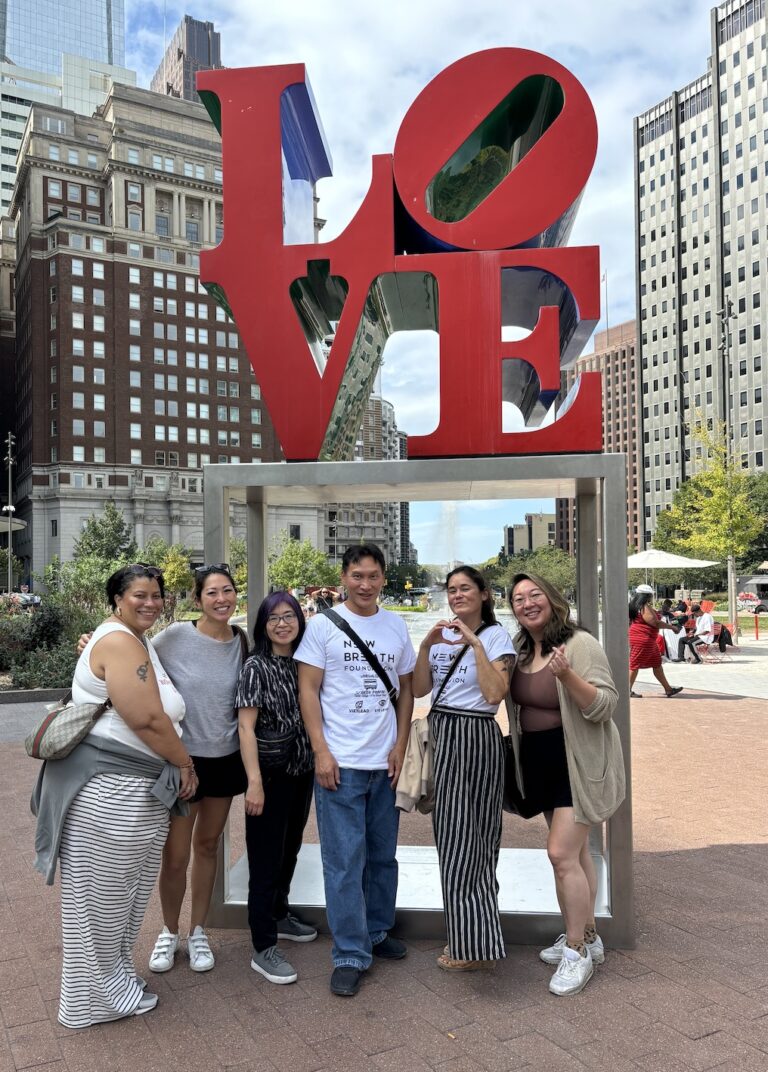
What are you looking forward to in 2025? Do you have any exciting projects or goals you want to share with us?
We are in the middle of a robust evaluation project, working with an external consultant to assess the impact of our capacity-building efforts, including the coaching and assessments we introduced last year. This process has been thoughtfully designed and aims to engage grantees in a way that’s culturally relevant and non-extractive. I’m eager to hear the insights it generates.
I’m also looking forward to our 2025 grantee convening. Planning is already underway as we explore venues and brainstorm programming to build on what we’ve done in past years.
Another significant milestone in 2025 is the 50th anniversary of the end of U.S. wars in Southeast Asia, including the fall of Saigon. Many of our grantees are mobilizing campaigns tied to this anniversary, advocating for increased resources, clemency, and relief for individuals impacted by the lasting effects of US military involvement, particularly around detention and deportation. I’m excited about these campaigns and programs, and we’re learning how New Breath can support and uplift these efforts.
You carry a lot in your work. How do you care for yourself and find balance?
I’ve prioritized maintaining strong boundaries between work and personal life throughout my career. Early on, when I was in the arts field and even in arts philanthropy, I kept my organizing separate. In some roles, colleagues didn’t even know about the organizing I was doing outside of my day job. I’m grateful to integrate those two parts of my life at NBF. This makes it even more critical to practice good boundaries.
A big part of that practice is being part of a supportive team that values self-care and wellness. At NBF, wellness is central to our identity—our name reflects the importance of breath, wellness, and vitality. This culture has enabled me to care for myself and find balance.
Outside of work, I’ve cultivated support and healing practices that help me stay grounded, and I’m always exploring new ones. Organizing remains an essential part of my healing journey, and to that, I have recently added liberatory coaching. It’s important to continue finding things that feel complementary to the other parts of my life rather than over-extending. This balance helps me stay connected to what matters while caring for myself.
Is there anything else you’d like to share that we haven’t covered?
Given the timing, many of us understand there will be big shifts politically, in policy, and across various fronts where our communities are advocating for justice. As a funder and an organizer, the challenges we face are not new. They may take on new forms or feel heightened, but core struggles–like deportations, increased policing, violence, and incarceration policies–have been ongoing.
For anyone feeling lost, overwhelmed, or unsure of how to contribute, I encourage looking to grassroots and directly impacted leaders who have been organizing for decades for guidance. We don’t need to reinvent the wheel–we need to support and amplify the work that’s already being done. By leaning into collective resources, wisdom, and action, we can meet the challenges ahead with strength and purpose.
–
Claudia Leung (she/they) is a queer, disabled, mixed-race second-generation Chinese American born and raised in the Bay Area. At New Breath Foundation, she serves as the Director of Programs, leading in strategic grantmaking, capacity building, evaluation, and learning. Throughout her career, Claudia has consistently focused on centering marginalized communities to effect intersectional cultural and social change. Her career spans more than a decade in roles from grantmaking to communications to fundraising at organizations working on racial justice, gender justice, arts, and education. Her organizing work and background as a liberatory coach inform her approach to philanthropy.
